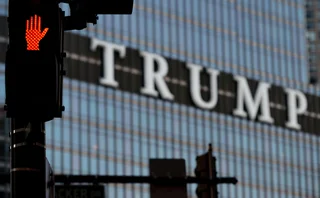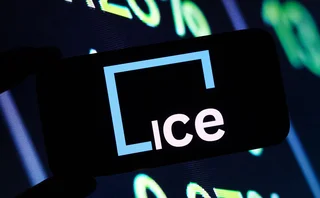
Icap recovers after WTC attacks
Icap, the word’s largest inter-dealer broker, says that a busy period for its interest rate swaps business during October and November, due to economic uncertainty and volatile interest rates across the globe, helped spur a 22% rise in global revenues, compared with the same months last year. The firm says it is looking for acquisitions, and adds that if current market conditions persist then full-year profits could be higher than the $80 million analysts expect.
Furthermore, Icap has identified new permanent facilities and hopes that these will be fully occupied and operational by the middle of 2002. Icap expects its material damage and business interruption insurance policies to be in the region of $50 million.
Michael Spencer, Icap chief executive, said: “Up until September 11, Icap enjoyed buoyant trading conditions in all centres. Notwithstanding the impact of the WTC tragedy and destruction of our New York offices, turnover for the first half of the year increased by 14% compared with the prior period, and costs (excluding bonuses) were held at the previous year’s level. Had it not been for the WTC disaster, we believe that pre tax profits would have exceeded £47 million.”
As a result of the WTC attacks, Icap was forced to take out a temporary bank overdraft due to settlement difficulties across financial markets. Consequently, Icap saw an unusually large incidence of counterparties that were unable to accept the delivery of stock on the contracted date. As Icap had already purchased assets to fulfil these contracts, this gave rise to unmatched trades that generated an exceptional cash outflow of £888 million, which was financed by a bank overdraft of £879,305,000 on September 30. But all of these trades have now been settled and the temporary borrowing has been repaid.
Europe, Middle East and Africa was the most profitable region generating £27.8 million, compared to £16.2 million for the same period in 2000, and Asia Pacific moved ahead to £3.6 million from £2.0 million for the same period in 2000. Meanwhile, American profits slipped to £7.8 million from £9.9 million for the same period in 2000.
Although Icap’s electronic broking business has made headway, with 35% of US treasuries broking volumes being transacted electronically, the electronic broking operation continues to be loss making, losing £7.5 million compared to a £3.1 million loss for the same period in 2000.
An interim dividend of 6.0 pence per share will be paid for the six-month period to September 30 2001, compared with a 5.0 pence dividend for the same period in 2000.
Only users who have a paid subscription or are part of a corporate subscription are able to print or copy content.
To access these options, along with all other subscription benefits, please contact info@risk.net or view our subscription options here: http://subscriptions.risk.net/subscribe
You are currently unable to print this content. Please contact info@risk.net to find out more.
You are currently unable to copy this content. Please contact info@risk.net to find out more.
Copyright Infopro Digital Limited. All rights reserved.
As outlined in our terms and conditions, https://www.infopro-digital.com/terms-and-conditions/subscriptions/ (point 2.4), printing is limited to a single copy.
If you would like to purchase additional rights please email info@risk.net
Copyright Infopro Digital Limited. All rights reserved.
You may share this content using our article tools. As outlined in our terms and conditions, https://www.infopro-digital.com/terms-and-conditions/subscriptions/ (clause 2.4), an Authorised User may only make one copy of the materials for their own personal use. You must also comply with the restrictions in clause 2.5.
If you would like to purchase additional rights please email info@risk.net
More on Regulation
The Emir error reports that cost banks millions
Dealers lambast onerous EU requirement to notify clients of all errors and omissions
Basel stops short on wrong-way risk
New guidelines a step in right direction, but experts warn they won’t prevent another Archegos
Trump 2.0 bank supervision: simpler but no soft touch?
Republican FDIC vice-chair Travis Hill wants more focus on financial risk instead of process
Iosco mimics industry codes to tackle pre-hedging dilemma
Advocates breathe sigh of relief, but Iosco release carries suggested restrictions
Ice’s AFX swoop shines spotlight on Ameribor prospects
CEO John Shay steps down after exchange group buys firm for mortgage and index synergies
Barr’s Fed exit likely to delay, but not destroy, Basel III
Market risk, op risk and leverage ratio all in the sights of Barr’s potential successors
FCMs call for more oversight of self-clearing CCP members
Clearing firms worry that PTFs and market-makers joining CCPs en masse will increase systemic risk
Complex EU active account reporting could drive trades out of UK
Draft Emir rules might not force large volumes to move to EU, but will make compliance difficult







